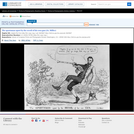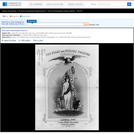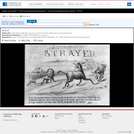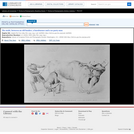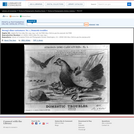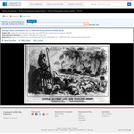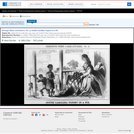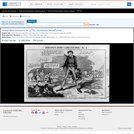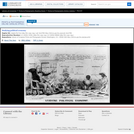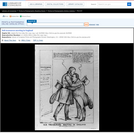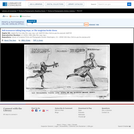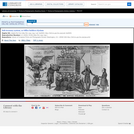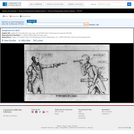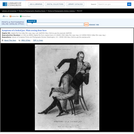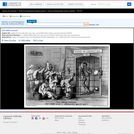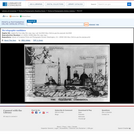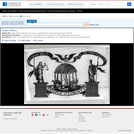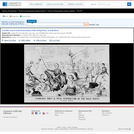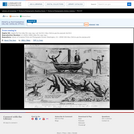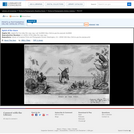
Satire on the diplomatic crisis and threat of hostilities between the United States and France over the latter's refusal to pay indemnifications set by the Treaty of 1831. The situation was exacerbated by remarks, made by President Jackson in a December 1835 speech, to which the French took offense. (See also nos. 1836-2, -3 and -5 on this crisis). "Spirit of the Times" focusses on England's role as mediator in the dispute during January 1836. The leaders of the two countries face each other across an ocean through which John Bull wades saying: "In "Pantaloons" John Bull can walkAcross the Atlantic for to baulk The Cock of all his boasted pride And Eagle's passion to subside." John Bull is portrayed as a bull wearing pantaloons and holding a musket. On the left shore, atop a cage holding a squawking goose, stands a cock with the head of French king Louis Philippe crowing: "Sacre non [i.e. "nom"] de Dieu!!!! Me vont be pick by you!!" Further to the left a turkey stands over a nest egg marked "Fr.25,000,000" (the amount of French reparations established by the treaty) and says: "Before from off this egg I rise You must to me apologise." On a birdhouse behind them a row of six pigeons with bayonets stand at attention with chests puffed out. An "Aquatic Expedition" of six geese heads across the water toward the American shore on the right, from where a rattle-snake boasts, "Let them come a'Shore; I'll rattle them." On the right, perched in a tree, is an eagle with the head of Andrew Jackson. Below him is a nest made of stars and stripes holding five young birds. Corn, like the rattlesnake indigenous to America, grows nearby. Jackson says:"Come stop your puffing, cease to Crow And pay the Debt you justly owe,Or full your Crop with Pills I'll cram, And stop your muttering "French God Damn."|Published by Prosper Desobry, Cor. Broadway & Cortlandt St. Entered. . . 2nd. Feby. 1836 . . . Southern District of N. York, by P. Desobry.|The Library's impression of the print was deposited for copyright on February 2, 1836.|Title appears as it is written on the item.|Weitenkampf, p. 41.|Forms part of: American cartoon print filing series (Library of Congress)|Published in: American political prints, 1766-1876 / Bernard F. Reilly. Boston : G.K. Hall, 1991, entry 1836-4.
- Subject:
- History
- U.S. History
- Material Type:
- Diagram/Illustration
- Primary Source
- Provider:
- Library of Congress
- Provider Set:
- Library of Congress - Cartoons 1766-1876
- Date Added:
- 06/08/2013
